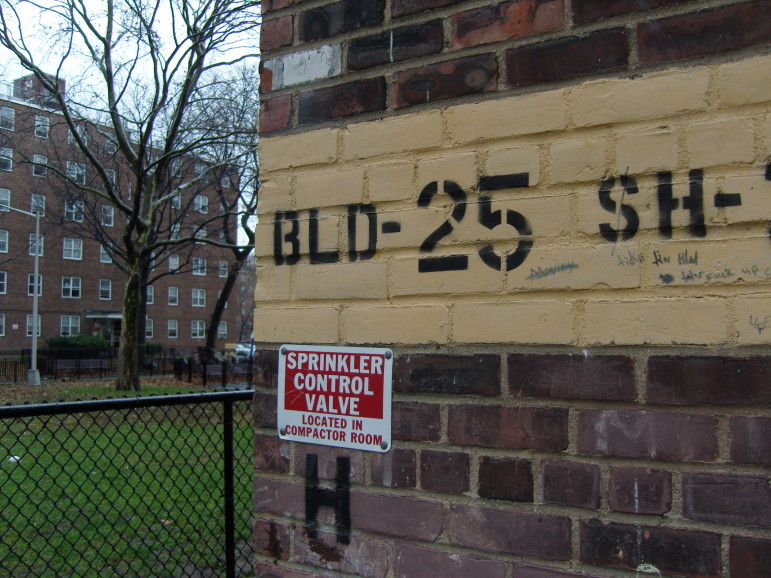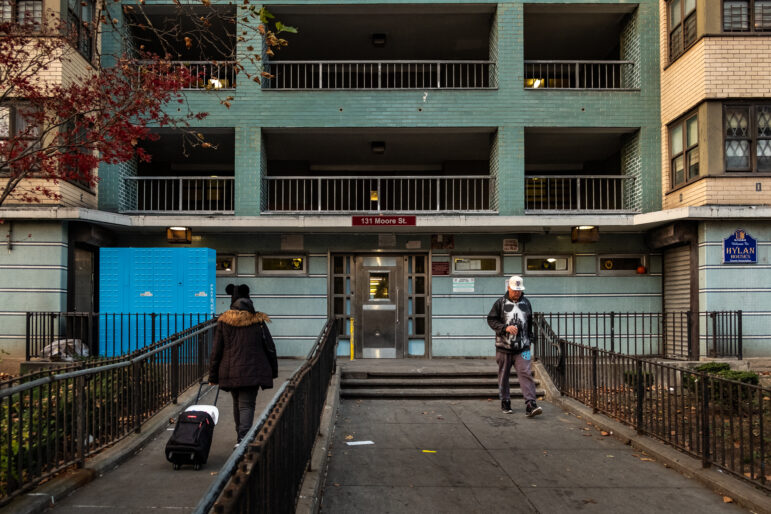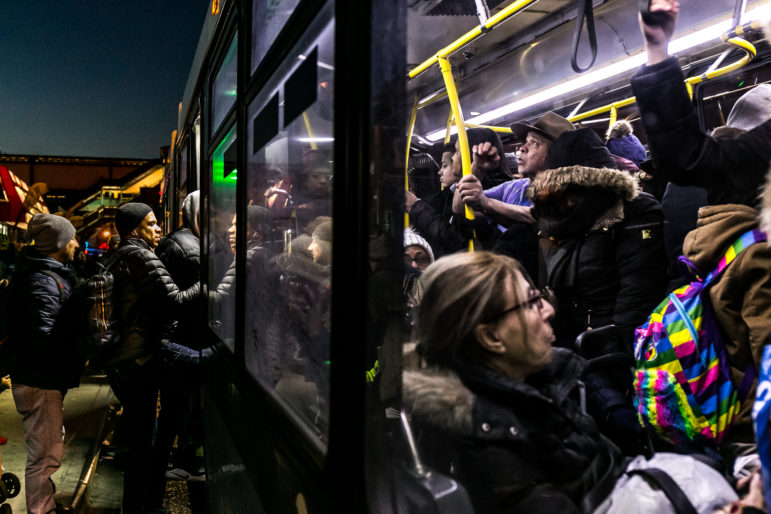
J. Murphy
At the Ravenswood Houses in Queens. Whether it was public housing, section 8, low-income housing tax credits or other policies, federal aid has been essential to creating decent housing in New York for decades.
Any New Yorker who signs a rent check feels it: our city has a dire shortage of affordable housing.
Historically, a blend of federal, state and city resources have helped to create housing for lower-income families. But in recent years, as demand for affordable rental housing has skyrocketed in New York and cities across the country, federal housing resources have stayed flat or even decreased, forcing state and city governments to do more with less.
It’s time to change that. The time has come to rebalance housing policy at the federal level.
About one million low-income households in New York City alone are either homeless or paying more than half of their monthly income on housing. But we’re not just seeing these kinds of staggering numbers in New York or even just in big cities. The housing affordability crisis is nationwide, and without intervention, it will only get worse.
At the same time, poverty is becoming more concentrated, and communities of color have been hit especially hard. The number of people in America living in high-poverty neighborhoods, where more than 40 percent of residents are poor, has nearly doubled since 2000. As low-income households compete for an ever shrinking supply of affordable housing, this leaves many with no choice but to settle for poor housing quality in high crime neighborhoods.
Housing affordability and concentrated poverty are systemic problems, and we need big, bold policy solutions to address them at all levels of government—including at the federal level.
That’s why this week Enterprise Community Partners released an ambitious national housing policy platform called An Investment in Opportunity, our bold new vision for policies aimed at ensuring that all Americans have access to a quality home they can afford in a decent neighborhood. We propose a variety of strategies for reform to (1) ensure broad access to high-income neighborhoods; (2) promote comprehensive investments in distressed neighborhoods; (3) target scarce subsidies to households who need them most; and (4) improve the overall financial stability of low-income families. While I encourage everyone interested in housing to read the full platform, there are several recommendations especially pertinent to New York.
1) Expand the supply of rental housing, with a focus on the needs of lower-income renters. In communities across the country, construction of new rental housing is not keeping up with the rising demand, especially at the lower end of the market. Annual allocations of Low-Income Housing Tax Credits, which have financed virtually all of the country’s affordable housing construction since the mid-1980s, fall woefully short of the need, meaning each year hundreds of viable developments that would serve low-income families in need are turned down just because of scarcity of tax credits. We propose significantly expanding and improving the Low-Income Housing Tax Credit Program, gradually doubling it over 10 years while giving states more flexibility to develop mixed-income housing through a change called “income averaging,” which reaches a broader mix of incomes, allowing for deeper affordability and serving more low-income families who don’t qualify under the current program.
2) Recalibrate our priorities in housing policy to target scarce subsidy dollars where they’re needed most. After a series of federal budget cuts in recent years, today only 23 percent of households who are eligible for federal rental assistance actually receive it, leading to decade-long waiting lists and lotteries for rare openings. Meanwhile, we’re spending tens of billions of dollars each year to subsidize the mortgages of high-income families who don’t need government support to remain stably housed. Each year, more federal housing subsidies go to the richest 5 million households – those making more than $200,000 per year – than go to the poorest 20 million households combined. We need to redirect more funds to successful programs like the Housing Credit, which benefit the households that need it most.
3) Improve the overall financial stability of low-income households. An important part of providing families with stable housing in a decent neighborhood is through incomes that reflect the actual cost of living in communities. We need higher minimum wages at the local, state, and federal levels. And we need to expand the Earned Income Tax Credit, which has proven to be one of our country’s most effective anti-poverty programs.
To be sure, some of the changes we’re proposing will come with significant costs to taxpayers, but consider the alternative. At the household level, severely cost-burdened households spent 70 percent less on healthcare and 40 percent less on food than families who are not cost-burdened, meaning that these families likely are not receiving adequate healthcare and nutrition. The overall economy also suffers. A recent study of high-cost cities like New York found that the dearth of affordable housing options costs the U.S. economy an estimated $1.6 trillion each year in lost wages and productivity alone. When families become homeless, the costs are astronomical.
Furthermore, some of the policies we propose, such as reforming the Mortgage Interest Deduction, will actually result in savings that could help offset the costs that other solutions will incur.
If these sound impossible, consider that many of these policies already have bipartisan support. In its 2013 report, Housing America’s Future, the Bipartisan Policy Center’s Housing Commission recommends increasing the supply of affordable homes by expanding the Housing Credit and providing additional gap financing.
To some, the problems seem too big and the political challenges too daunting. But I disagree. We know what we need to do and we know how. The question now is: Are we willing to work together to make this happen? I hope you’ll join us.
Judi Kende is vice president and New York market leader at Enterprise Community Partners, Inc., a national organization that creates, preserves and advocates for affordable housing.









One thought on “CityViews:
It’s Time for New Yorkers to Talk about Housing at the Federal Level”
Since Section 8 has been closed for several years & no increase was given for several years also there should be monies accumulating somewhere to build real affordable housing.